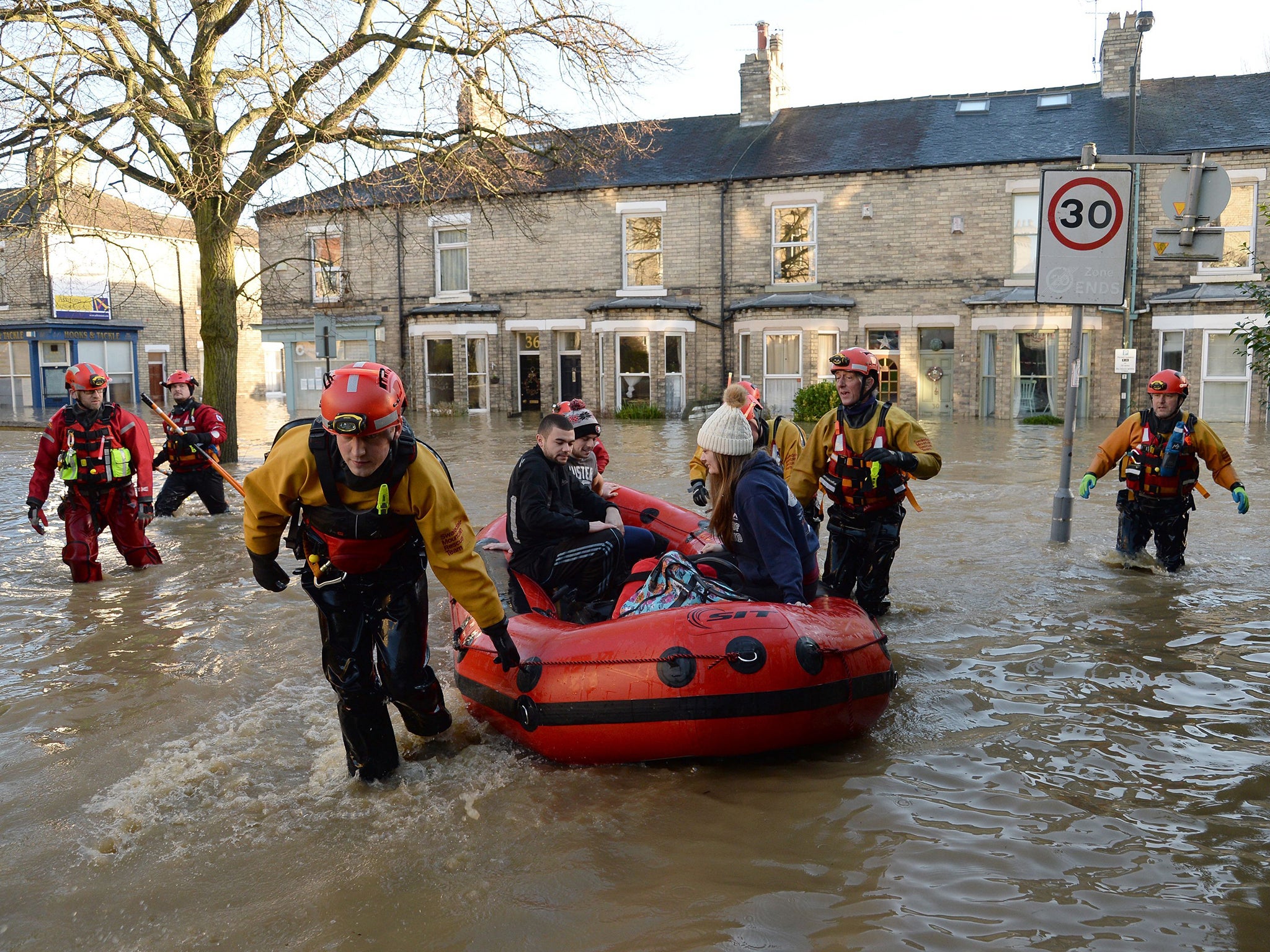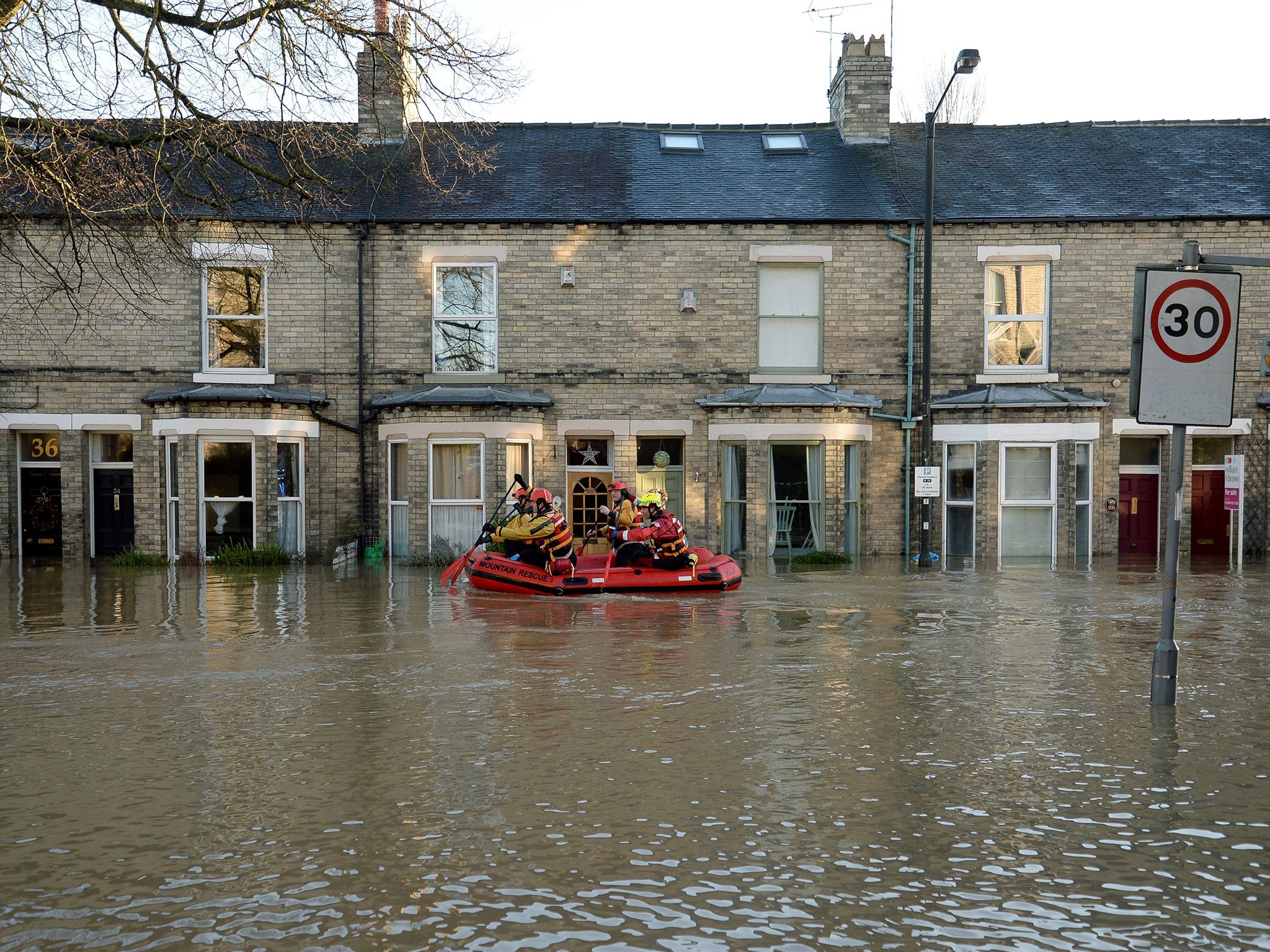UK flooding: Government rejected warnings of high flood risk from own advisers
Decision not to develop comprehensive strategy to address flood risk came just a few weeks before flooding in Cumbria

Your support helps us to tell the story
From reproductive rights to climate change to Big Tech, The Independent is on the ground when the story is developing. Whether it's investigating the financials of Elon Musk's pro-Trump PAC or producing our latest documentary, 'The A Word', which shines a light on the American women fighting for reproductive rights, we know how important it is to parse out the facts from the messaging.
At such a critical moment in US history, we need reporters on the ground. Your donation allows us to keep sending journalists to speak to both sides of the story.
The Independent is trusted by Americans across the entire political spectrum. And unlike many other quality news outlets, we choose not to lock Americans out of our reporting and analysis with paywalls. We believe quality journalism should be available to everyone, paid for by those who can afford it.
Your support makes all the difference.Minsters were warned by the Government’s own climate change advisers that they needed to take action to protect the increasing number of homes at high risk of flooding - but rejected the advice.
The decision not to develop a comprehensive strategy to address increased flood risk came in October just a few weeks before the flooding in Cumbria before Christmas and the most recent flooding in Lancashire and Yorkshire.
Following the devastation caused in Cumbria George Osborne announced the creation of a £50 million repair scheme for those whose property had been damaged.
Experts believe the cost of clearing up the most recent flooding effecting both Leeds and York could exceed this figure.
The Committee on Climate Change (CCC) said that despite David Cameron’s promise to do so, the government had failed to learn lessons from the widespread flooding in 2013/14.
In June, the committee report on the progress towards tackling climate change highlighted dealing with floods from extreme weather as the government’s most serious failing.
It stated: “Plans and policies, or progress in addressing vulnerabilities, are lacking”.
The CCC recommended that the government should “develop a strategy to address the increasing number of homes in areas of high flood risk”.
But in October the government replied: “We believe that a strategy to address future residual risk would not be appropriate at this time.”
Daniel Johns, the CCC’s head of adaptation told The Guardian: “The CCC made a very clear recommendation in its statutory advice, but the government rejected it.”

“But the government has no strategy to address this residual risk.”
A government spokeswoman said: “This government has been clear on its commitment to climate change action and we are pushing for an ambitious global deal in Paris as well as driving innovation to build a low-carbon economy. We are also investing £2.3bn over the next six years to better protect 300,000 homes. The Environment Agency’s figures take account of climate change and show that this investment will reduce flood risk.”
Join our commenting forum
Join thought-provoking conversations, follow other Independent readers and see their replies
Comments